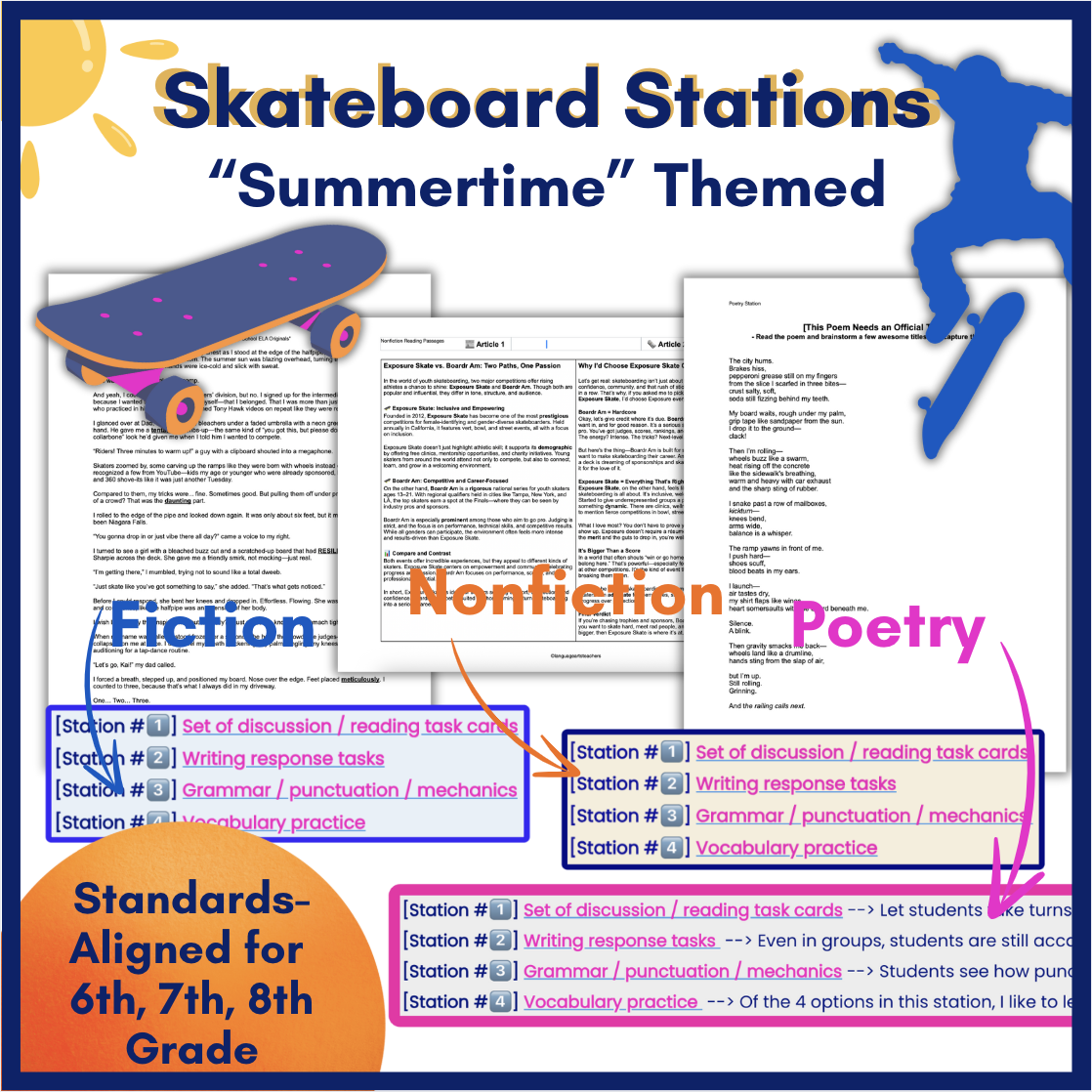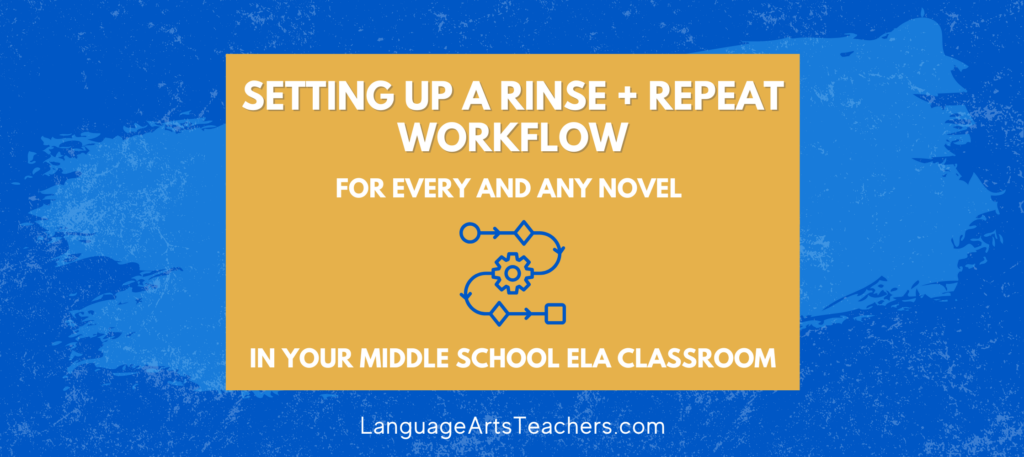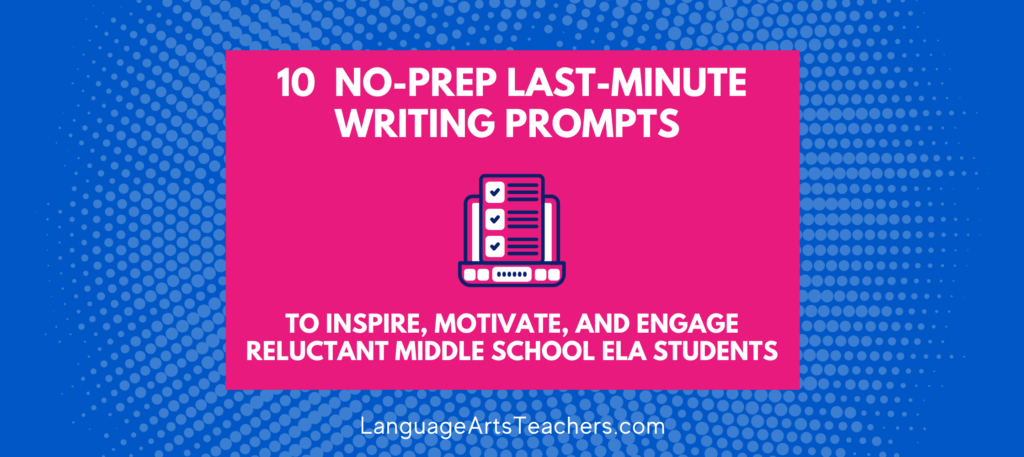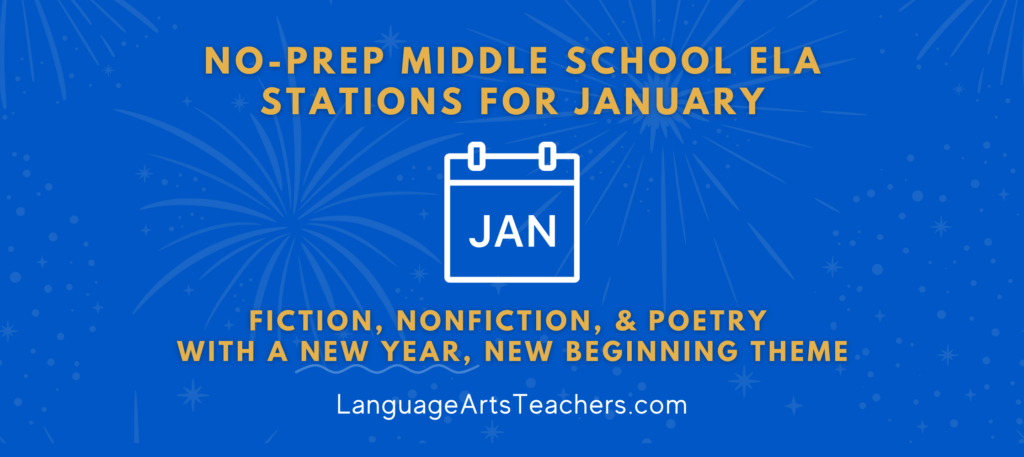Summer school teachers, tutoring teachers, and anyone feeling summertime vibes—let’s talk about a summertime solution that hits the sweet spot between student engagement and academic rigor.
If you’re staring down a summer school roster or running tutoring sessions that need to review reading and writing skills without sending kids running for the exit, this set of 12 summer-themed, skateboarding-inspired stations will save the days ahead (and your sanity).
These Middle School ELA stations aren’t just super on-theme for June and July—they’re flexible, low-prep, and packed with meaningful tasks for review & practice. Use them as:
- Traditional station rotations
- Independent work
- Small group challenges
- Summer bridge activities
- Or even quick-hit lessons during the school year
With three core reading selections (a fiction excerpt, a set of paired nonfiction texts, and an original poem) + four activities per selection (reading, writing, grammar, vocab), you get 12 ready-to-roll stations.
And the theme that connects it all so none of the lessons feels random?
→ All things skateboarding. Here’s what that looks like.
✨ Fiction Station: “Drop In” (Excerpt)
Reading Summary: In this 2-page excerpt from an original realistic fiction piece (couldn’t find anything for middle school about skateboarding, so I wrote it myself!), a seventh grader finally decides to “drop into” the deep end of a skatepark bowl after weeks of doubt and hesitation. With encouragement from Dad, a shaky grip on the railing, and a pounding heart, the main character makes the leap—literally and figuratively.
“I stood at the edge of the bowl. One foot on the board. One hand gripping the rail. My stomach flipped harder than any trick I’d ever landed.”
✅ Station Activities (Answer keys included!):
- Reading: Character Change Analysis
- Vocabulary: Use context clues to infer bolded vocab words from the excerpt
- Writing: 6 options using the R.A.C.E. writing method (assuming your students already know this method… If not, that’s ok! You could alternatively refer to whatever ‘writing strategy’ for a paragraph response you’re used to using.
- Grammar/Mechanics: Comma review task cards (examples built-in)
🔍 Skills Covered:
- Characterization, plot, sensory language, internal conflict, POV
- Context clues and word meaning
- Analytical writing (R.A.C.E.)
- Comma rules practice
⬆️ Extend It:
- Have students read the story out loud with a partner, practicing different ways to use voice inflection to help convey not just what a character is saying or thinking, but how they’re saying or thinking it.
- Challenge students to rewrite the scene from the parent’s point of view or from the “Buzzcut Girl” point of view.
💪 Modify It:
- Discuss first, write second so students know what they want to write about (beats the “I don’t know how to start / what to write” issue).
- Provide a sentence starter scaffold for R.A.C.E. writing so students have a way to begin each sentence.
✨ Nonfiction Station: Paired Passages on Skateboarding Competitions
Original Mini-Passages (only one page total):
- “Exposure Skate vs. Boardr Am: Two Paths, One Passion” (informational article)
- “Why I’d Choose Exposure Skate Over Boardr Am Any Day” (op-ed style opinion)
Reading Summary: These articles compare two major skateboarding competitions: Exposure Skate, which emphasizes friendly, informal youth competition, and Boardr Am, known for being more serious and competitive in its search for rising stars.
“Exposure Skate isn’t just a competition—it’s a movement. And it’s about time the movement got some airtime.”
✅ Station Activities (Answer keys included!):
- Reading: Compare and contrast the information and authors’ opinions presented in the two texts
- Vocabulary: Part 1 + Part 2 task cards: Use context clues to fill in the blank with the correct term and then select which specific words or phrases helped you with your inference.
- Writing: Persuasive paragraph – which competition would YOU enter and why?
- Grammar/Mechanics: Parts-of-Speech skateboard coloring (because it’s summer, so we need a little fun + review!)
🔍 Skills Covered:
- Analyze paired texts (author’s purpose, tone, elements of nonfiction)
- Context clues & vocabulary
- R.A.C.E. analysis writing (student choice prompts)
- Parts-of-Speech (coloring, review)
⬆️ Challenge It:
- What sport or competition is your students’ favorite for them, personally? Have them research their own favorite youth sport to learn what options exist for friendly or formal competitions.
💪 Modify It:
- Spend time simply using the discussion task cards (especially the reading ones) to make sure students understand what exactly each one is asking. Often, struggling students aren’t confident they even know what a question means or what it’s asking. So spend time there, before actually having them respond to the questions.
- Provide sentence stems for the writing task
✨ Poetry Station: “This Poem is Intentionally Untitled” (Original Poem)
Poem Summary: This vivid free verse poem captures the thrill of skateboarding in a city setting. The speaker uses sensory imagery to describe the feeling of skating as a form of flight, freedom, and fancy footwork.
“Wheels whisper against hot pavement / thunder in my ears / I kick, push, glide / cracking the concrete sky.”
✅ Station Activities (Answer keys included!):
- Reading: Analyze the speaker’s attitude using tone and diction
- Vocabulary: Creatively use sensory words for choice poems
- Writing: R.A.C.E. prompts (6 prompts total to choose from!)
- Grammar/Mechanics: How punctuation influences comprehension
🔍 Skills Covered:
- Tone, speaker, imagery, poetic structure/form
- Sensory language and figurative techniques
- Literary analysis writing (R.A.C.E. strategy)
- Punctuation, grammar, mechanics (how they impact meaning)
⬆️ Challenge It:
- Students write their own free verse poem on a topic of their choosing with sensory language
- Add metaphor or simile challenges to the poem analysis
💪 Modify It:
- Provide a sensory word bank or poem annotation guide
- Use a simplified R.A.C.E. format with just R + A
📝 Sample Student Response for Writing Prompt↴
Writing Prompt Example from This Station: Why do you think the poet chose free verse instead of a structured rhyme scheme?
I think the poet used free verse because skateboarding is all about freedom and trying new things. If the poem had a rhyme, it would feel too perfect and planned. The poet wanted to show movement and creativity, and free verse does that. It makes the poem look and feel like skateboarding.
Vibing with the idea of stations but maybe a little uncertain about implementing them?
You have two options:
(2) Or, use the materials whole-class style as part of your spiral review of reading, writing, vocabulary, and grammar that you know you need to be doing anyway… Then, when you’re ready for stations, you’ll have all the items ready to go!
Ready to Level Up Your Stations?
Get your PDF + Google slides Summer Skateboarding Stations, and use them anytime during the year that you’re feeling summer-y!




